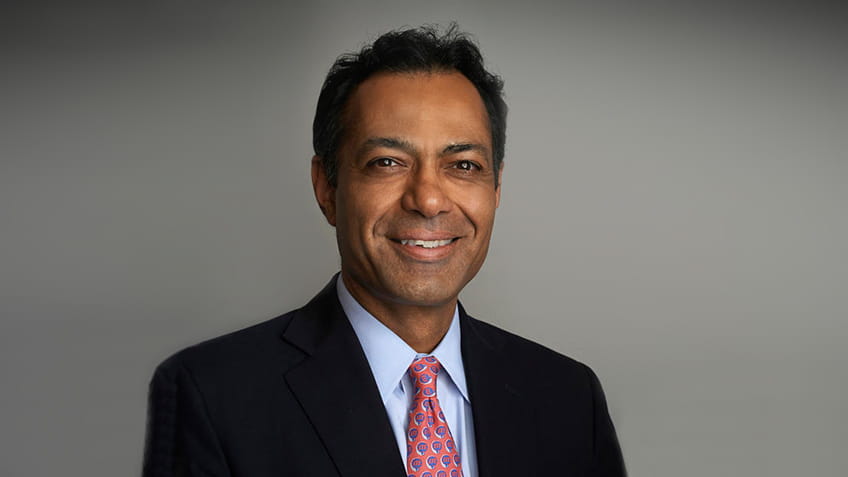Jai Shekhawat '96

Jai Shekhawat '96
Founder, Fieldglass
In 1995, Professor Howard Tullman turned to his class of Kellogg students and asked for a show of hands. “How many of you are planning to start a company after graduation?” he asked.
About half of the students raised their hands. But Jai Shekhawat ’96 wasn’t among them. The MBA student was confident in his future plans: He wanted to join McKinsey & Company as a consultant — which he did, immediately after graduation.
But a few years into his consulting career, Shekhawat began to experience a nagging feeling that he needed to do something else. In a dramatic step-change, he left McKinsey in 1998 to launch a technology company, Fieldglass, which went on to become the world’s largest provider of cloud-based Vendor Management Systems (VMS) and dismantled virtually all of its competitors in the process. Shekhawat led the company as its CEO for 17 years, and then sold it to SAP in 2014 for $1 billion.
Ask Shekhawat, and he’ll tell you that he wouldn’t have been able to build such a game-changing company without the toolkit that he gained at Kellogg.
“It was like being given Lego blocks without a blueprint for what do with them,” says Shekhawat. “Then that blueprint shows up later — meaning, you encounter a problem that you find interesting, and you realize that you have the parts to create a solution to that problem.”
The business problem that piqued Shekhawat’s interest was managing and optimizing a contingent workforce, an issue that he repeatedly experienced in his career — first as a contract cobalt programmer, then as head of operations at IT firm Syntel and later as a McKinsey consultant. After analyzing how other providers were addressing this problem for their clients, Shekhawat could easily spot weak points in their offerings. He knew how to build a superior product.
In hindsight, building something was always what Shekhawat was destined to do. As a child, he loved to draw. As a young adult, he became a hobby journalist. And at Kellogg, he gravitated towards the challenge of shaping business plans.
“In a sense, those were all acts of creation,” Shekahawat says. “They were acts of entrepreneurship.”
Since moving on from Fieldglass, Shekhawat has continued to focus on acts of creation, although through different avenues than before. In addition to his many philanthropic activities, he currently sits on the boards of two nonprofit organizations and seven for-profit companies, all of which he joined because “the world will be better if they succeed,” he says.
To Shekhawat’s credit, Fieldglass has already had that influence on the world. Following the SAP acquisition, he made sure that “the wealth we created was spread far and deep” by distributing generous bonuses to all of the company’s 400-plus employees worldwide. For many of those employees, the gesture was life changing; an administrator in London, for example, was able to buy a house for the first time.
“That’s impact,” Shekhawat says. “That is building something on the human scale.”
Take Action
- Apply Now
- Request Information
- Campus Tour
- Attend an Event
